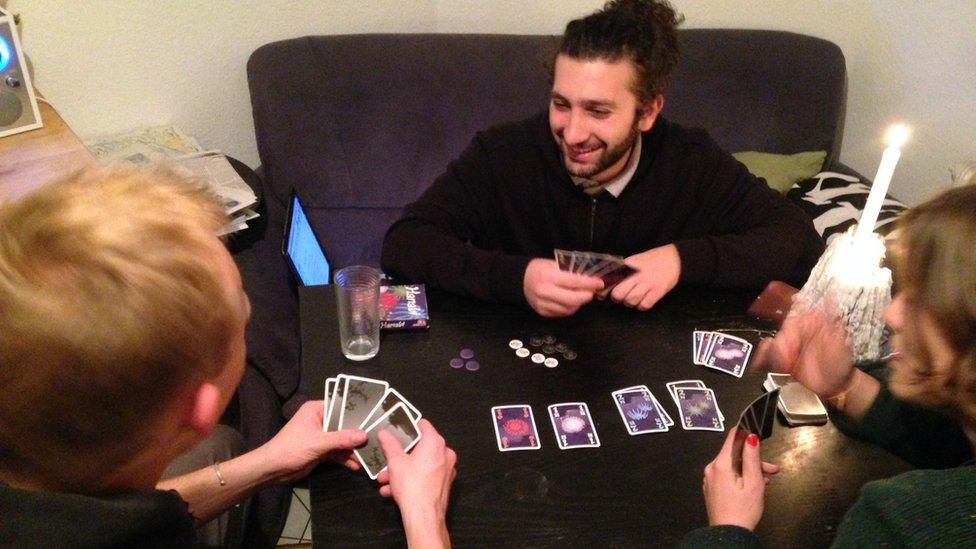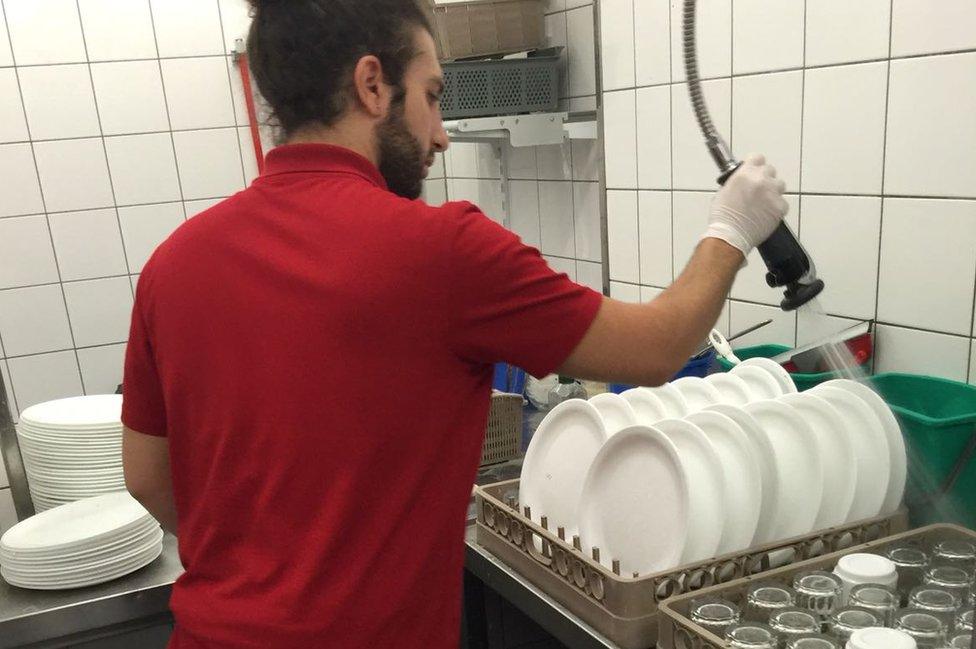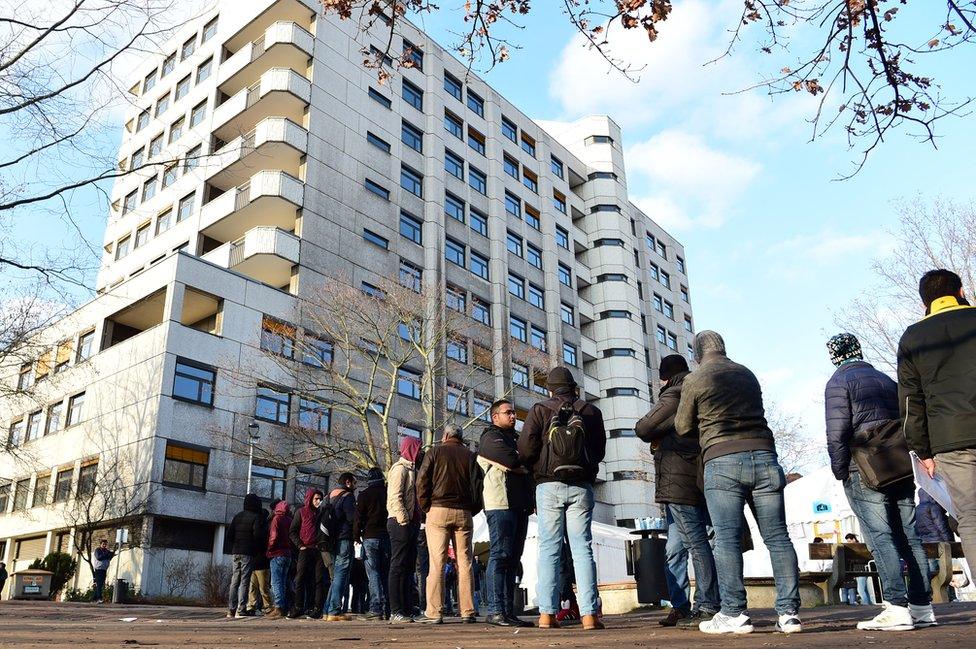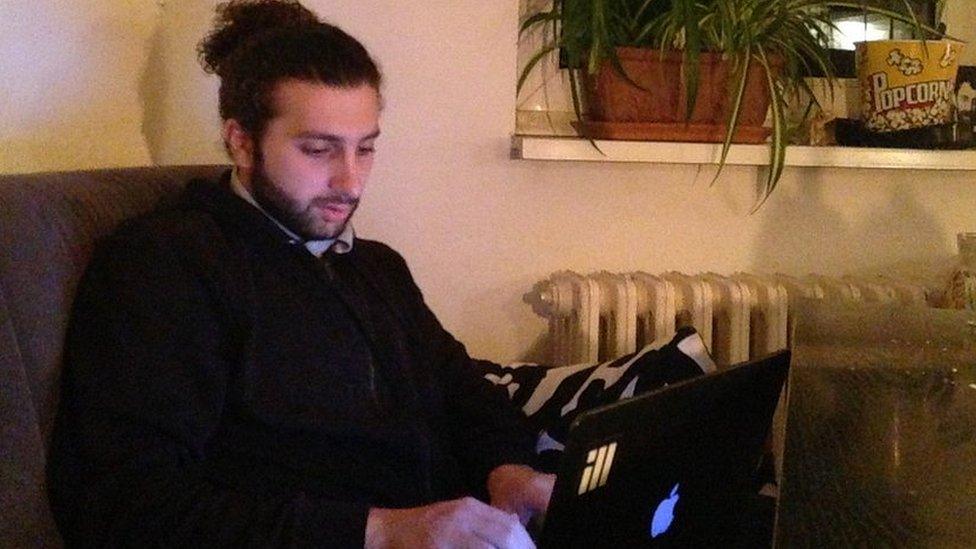Migrant crisis: A Syrian's struggle to become German
- Published

Sami Farah (centre) is building new friendships after 15 months in Berlin
More than a year after arriving in Germany, Sami Farah, a 23-year-old music therapist from war-torn Syria, is finally putting down roots in his new home - Berlin.
Sami was among nearly 900,000 non-EU migrants who reached Germany last year - an unprecedented influx. Helped by activist group Jobs4refugees, he has now found a job as a hotel dish-washer. This is his story.
They don't teach you in school how to start a new life from zero. You don't learn how to leave everything behind, your family, job, friends, community - your home - and go to a new place, where you are no-one, you know no-one.
It's not taking a leap of faith - it's jumping into the sea, literally. That is how people reach Europe - on small, crowded boats.
But the wondrous human spirit is surprisingly capable of more than you could imagine.

From music therapy student in Damascus to dish-washer in Berlin
I've reached a milestone in my life. I speak German, I have a supportive family, I live in a shared flat with two other Germans. I have two new close friends and, finally, a job in a hotel kitchen, after waiting five months for a work permit.
It's minimum wage - €8.5 per hour (£7.7; $9.3) - which is just enough to live on and pay your bills and legal fees. My colleagues are nice, my boss is very supportive.
There are still a lot of dark days - when you can't attend your elder brother's wedding, or your sister's.
They refused to recognise me as an official refugee - instead I got subsidiary protection status, with one-year residency.
Some days you have to wait for 10 hours at the State Office for Health and Social Affairs (LaGeSo) - only to be treated in a demeaning way by some security guys and some employees.
Then there were cold weeks when you had to wait outside for eight hours, in a never-ending queue.
But let's try to stay positive and optimistic: you do meet interesting people, and hear different stories - some that make you cry inside, but others that make your heart smile.
I consider myself blessed to have met such great people since I arrived here, people I learned from, and shared experiences with - memorable times.

Asylum seekers have to queue for hours to get the papers they need in Berlin
At times I needed to get out of my comfort zone and try out new things. Some ended up badly, but some changed my life.
Do I have worries? Of course - I'm worried about discrimination, about anti-refugee extremist groups, and how that might affect my life in this country, or any other country.
I worry about the safety of my relatives in Syria - only a few managed to flee to Germany. I worry about my family's finances, as there is little job security for Syrians in Jordan.
I won't lie - I don't feel secure.
But again, the human spirit pushes us on, to believe in a better future, to hope that life will be normal again. You know, the usual: being able to study, have a career of your own, a family of your own some day.
I want the same things that you want. A life.

Sami counts himself lucky - but still gets homesick
A note on terminology: The BBC uses the term migrant to refer to all people on the move who have yet to complete the legal process of claiming asylum. This group includes people fleeing war-torn countries such as Syria, who are likely to be granted refugee status, as well as people who are seeking jobs and better lives, who governments are likely to rule are economic migrants.